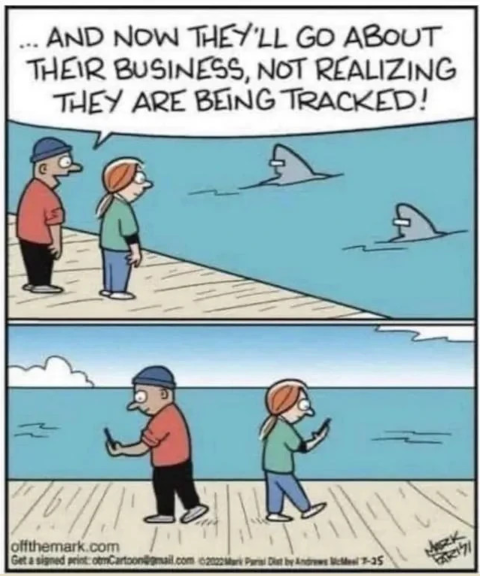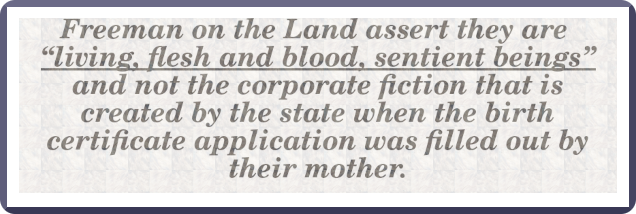Governments are needed for about 2 reasons:
1. To organize and direct the military in the times of attack;
2. To organize and direct during natural disasters.
People don't need any other training than two basic forms:
1. What they get from their parents and relatives;
2. Love God above all things, and your neighbor as yourself.
The family should be the government. Any government other than that should disperse as soon as the 'emergency' is over.
For little local needs, like a local theft or even murder, a temporary government should be selected by the local people. Somebody should be selected as court administrator, and the local 12-person jury should be the judges. Once the case is done, the little government should be terminated.
Read the sci-fi book, "The Moon is a Harsh Mistress," by Robert Heinlein. From the book, "If two people brought a quarrel to
[Judge] Brody and he could not get them to agree that his settlement was just, he would return fees and, if they fought, referee their duel without charging—and still be trying to persuade them not to use knives right up to squaring off." In other words, anybody could be selected as judge regarding anything as long as both people accepted him as judge. Lots of logic in this fun-to-read book.

EDIT: From the book:
One lad, oldest, about eighteen and leader, said to me, “Where’s judge?”
“Don’t know. Not here.”
He chewed lip, looked baffled. I said, “What trouble?”
He said soberly, “Going to eliminate his choom. But want judge to confirm it.”
I said, “Cover taprooms here around. Probably find him.”
A boy about fourteen spoke up. “Say! Aren’t you Gospodin O’Kelly?”
“Right.”
“Why don’t you judge it.”
Oldest looked relieved. “Will you, Gospodin?”
I hesitated. Sure, I’ve gone judge at times; who hasn’t? But don’t hanker for responsibility. However, it troubled me to hear young people talk about eliminating a tourist. Bound to cause talk.
Decided to do it. So I said to tourist, “Will you accept me as your judge?”
He looked surprised. “I have choice in the matter?”
I said patiently, “Of course. Can’t expect me to listen if you aren’t willing to accept my judging. But not urging you. Your life, not mine.”
He looked very surprised but not afraid. His eyes lit up. “My life, did you say?”
“Apparently. You heard lads say they intend to eliminate you. You may prefer to wait for Judge Brody.”
He didn’t hesitate. Smiled and said, “I accept you as my judge, sir.”
“As you wish.” I looked at oldest lad. “What parties to quarrel? Just you and your young friend?”
“Oh, no, Judge, all of us.”
“Not your judge yet.” I looked around. “Do you all ask me to judge?”
Were nods; none said No. Leader turned to girl, added, “Better speak up, Tish. You accept Judge O’Kelly?”
“What? Oh, sure!” She was a vapid little thing, vacantly pretty, curvy, perhaps fourteen. Slot-machine type, and how she might wind up. Sort who prefers being queen over pack of stilyagi to solid marriage. I don’t blame stilyagi; they chase around corridors because not enough females. Work all day and nothing to go home to at night.
“Okay, court has been accepted and all are bound to abide by my verdict. Let’s settle fees. How high can you boys go? Please understand I’m not going to judge an elimination for dimes. So ante up or I turn him loose.”
Leader blinked, they went into huddle. Shortly he turned and said, “We don’t have much. Will you do it for five Kong dollars apiece?”
Six of them—“No. Ought not to ask a court to judge elimination at that price.”
They huddled again. “Fifty dollars, Judge?”
“Sixty. Ten each. And another ten from you, Tish,” I said to girl.
She looked surprised, indignant. “Come, come!” I said. “Tanstaafl.”
She blinked and reached into pouch. She had money; types like that always have.
I collected seventy dollars, laid it on desk, and said to tourist, “Can match it?”
“Beg pardon?”
“Kids are paying seventy dollars Hong Kong for judgment. You should match it. If you can’t, open pouch and prove it and can owe it to me. But that’s your share.” I added, “Cheap, for a capital case. But kids can’t pay much so you get a bargain.”
“I see. I believe I see.” He matched with seventy Hong Kong.
“Thank you,” I said. “Now does either side want a jury?” Girl’s eyes lit up. “Sure! Let’s do it right.” Earthworm said, “Under the circumstances perhaps I need one.”
“Can have it,” I assured. “Want a counsel?”
“Why, I suppose I need a lawyer, too.”
“I said ‘counsel,’ not ‘lawyer.’ Aren’t any lawyers here.” Again he seemed delighted. “I suppose counsel, if I elected to have one, would be of the same, uh, informal quality as the rest of these proceedings?”
“Maybe, maybe not. I’m informal sort of judge, that’s all. Suit yourself.”
“Mm. I think I’ll rely on your informality, your honor.”
Oldest lad said, “Uh, this jury. You pick up chit? Or do we?”
“I pay it; I agreed to judge for a hundred forty, gross. Haven’t you been in court before? But not going to kill my net for extra I could do without. Six jurymen, five dollars each. See who’s in Alley.”
One boy stepped out and shouted, “Jury work! Five-dollar job!”
They rounded up six men and were what you would expect in Bottom Alley. Didn’t worry me as had no intention of paying mind to them. If you go judge, better in good neighborhood with chance of getting solid citizens.
I went behind desk, sat down, put on Brody’s plug hat—wondered where he had found it. Probably a castoff from some lodge. “Court’s in session,” I said. “Let’s have names and tell me beef.”
Oldest lad was named. Slim Lemke, girl was Patricia Carmen Zhukov; don’t remember others. Tourist stepped up, reached into pouch and said, “My card, sir.”
I still have it. It read:
STUART RENE LaJOLE
Poet—Traveler—Soldier of Fortune
Beef was tragically ridiculous, fine example of why tourists should not wander around without guides. Sure, guides bleed them white—but isn’t that what a tourist is for? This one almost lost life from lack of guidance.











